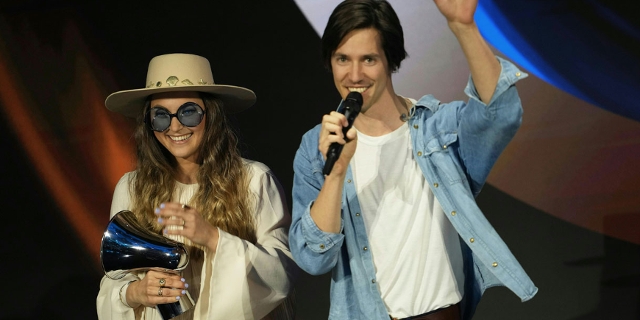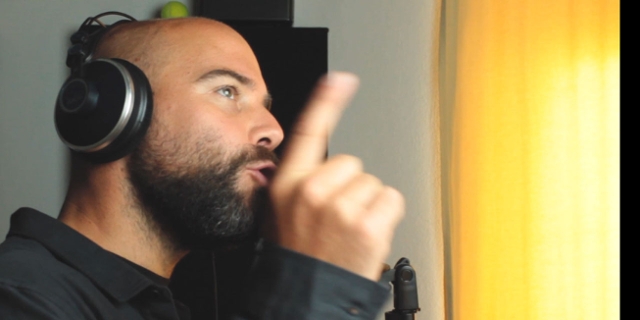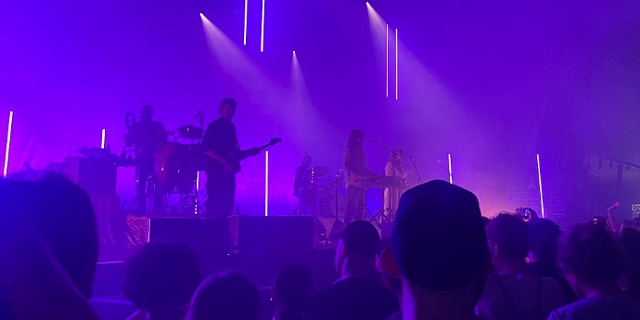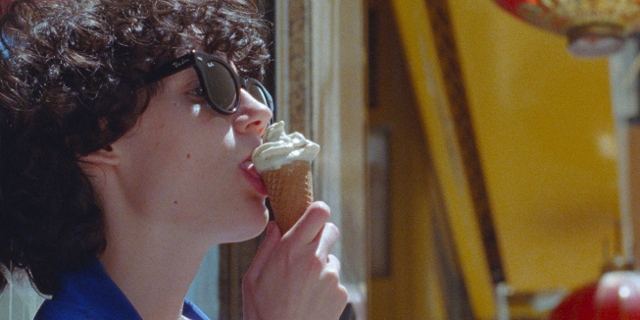Ephraim Asili im FM4 Gästezimmer
Von Natalie Brunner
Wir leben in einer Gesellschaft, in der Dingen mehr Wertschätzung erteilt wird als Lebewesen. Wie gehen wir damit um?
Das ist eine sehr prinzipielle moralische Frage, die aber mit voller Wucht trifft. Sie wird in dem Film „The Inheritance“ aufgeworfen. Es ist das Spielfilmdebüt des afro-amerikanischen Regisseurs Ephraim Asili. „The Inheritance“ ist ein Film, der sehr nahe geht, weil Asili Elemente aus Spielfilm und Dokumentation geschickt ineinander verwebt und so die Rezeptionsmechanismen aushebelt, die Zuseher*innen internalisiert haben.
In „The Inheritance“ erbt Julian das Haus seiner Großmutter in Philadelphia. Im Haus gibt es Bücher und Platten, die seiner Großmutter gehörten und wichtige kulturelle Grundlagen der afro-amerikanischen Bürgerrechtsbewegung sind. Die Texte und die Musik, die im Film gespielt und vorgelesen werden, sind Repräsentationen verschiedener Aspekte der Politik der Afro-Diaspora in den USA und antikolonialer Politik. Julian setzt sich intellektuell mit dem politischen Erbe, das ihm seine Großmutter hinterlassen hat, auseinander und gründet in dem geerbten Haus ein Kollektiv, das sich mit afroamerikanischer Kultur und Widerstandgeschichte auseinandersetzt und sie weiterführt.
Julian, seine Freundin Gwen und die eingezogenen Aktivist*innen, Künstler*innen und Musiker*innen beginnen in dem neugeschaffenen Raum über mögliche neue Lebens- und Denkweisen zu verhandeln und auch zu streiten, was vor allem an Julians Kindheitsfreund Rich liegt, der nicht wie die anderen Bewohner*innen aus politischer Überzeugung eingezogen ist, sondern weil ihn seine Mama rausgeschmissen hat. Rich, der vorschlägt, bei dem Fest, mit dem sich das politische Kollektiv der Nachbarschaft vorstellen will, Stripper*innen zu engagieren, ist in „The Inheritance“ die Verbindung zu einer von Zynismus durchzogenen Gesprächskultur der Gegenwart.
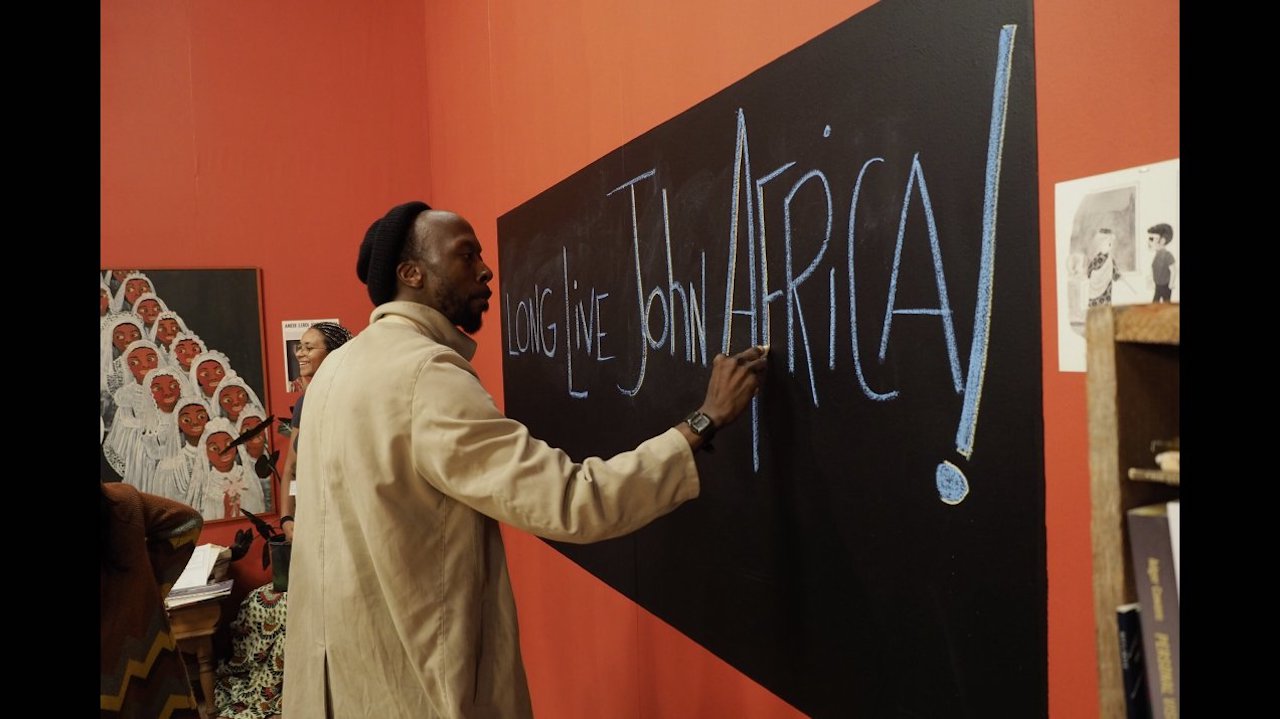
Viennale
„The Inheritance“
Der Regisseur Ephraim Asili hat „The Inheritance“ auf den Erfahrungen aufgebaut, die er selbst in seinen Zwanzigern gemacht hat, als er in einem Kollektiv in Philadelphia lebte. Zentral für dieses reale Kollektiv sowie auch für jenes fiktive im Film ist die revolutionäre, afro-amerikanische Organisation MOVE, die in den 70er Jahren in Philadelphia gegründet und von der Polizei sehr brutal bekämpft wurde. Als das Move-Haus 1985 geräumt werden sollte und die Bewohnerinnen Widerstand leisteten, warfen die Behörden eine Bombe auf das Haus und töteten damit sechs Erwachsene und fünf Kinder. Der gesamte Häuserblock brannte nieder und über 200 Menschen wurden obdachlos.
In dem Spielfilm „The Inheritance“ besuchen die realen politischen Aktivist*innen, die den Bombenabwurf überlebt haben, das fiktive, nach ihrem Vorbild ausgerichtete Kollektiv und erzählen von ihren Konfrontationen mit dem Staat. Ihre im Gefängnis geborenen Kinder sprechen über die Verschleppung in Waisenhäuser, über Misshandlungen durch diese Institutionen und darüber, wie sie als Erwachsene ihre Familie wieder zusammengeführt haben und MOVE nun weiterführen.
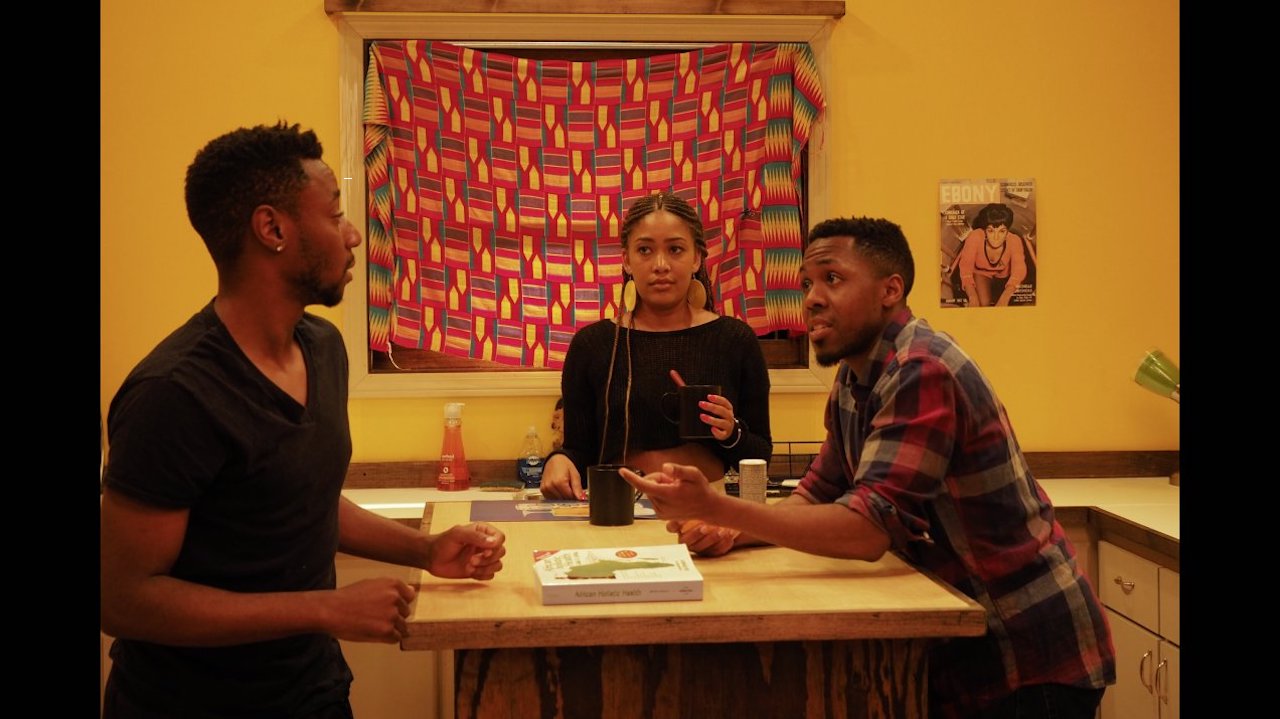
Viennale
„The Inheritance“
Diese Erzählungen, denen die Schauspieler*innen von „The Inheritance“ in ihrem Wohnzimmer und wir, das Filmpublikum im Saal, gleichermaßen lauschen, wirken viel intensiver als Auftritte von Talking Heads in Dokus. Es wird sehr direkt politische und persönliche Geschichte mit uns geteilt. Asili ergänzt diese Erzählungen durch Archivmaterial.
Viennale 2021
- FM4 präsentiert „Annette“ am 29.10. um 23 Uhr im Gartenbaukino
- FM4 Homebase zur Viennale vom 27.10. im Player
- Die Viennale auf FM4
Wir lernen gemeinsam mit den Protagonist*innen von „The Inheritance" nicht nur über politischen Kampf von Move, sondern auch über das Denken der sich selbst als „black, lesbian, feminist, mother, poet, warrior“ bezeichnenden Aktivistin und Schriftstellerin Audre Lorde. Wir hören Kernpassagen aus den Schriften des antikolonialen Aktivisten und Politikers Julius Nyerere, sehen Interviews der ersten afro amerikanischen Kongressabgeordneten Shirley Chisholm und einen Auftritt der Spoken Word Perfomerin Ursula Rucker im Wohnzimmer des sich „The House of Ubuntu“ nennenden Kollektivs. Ephraim Asili schafft es durch die raffinierte Struktur von „The Inheritance“, diese Referenzen aus Politik, Literatur und Musik lebendig zu machen und sehr intensiv wirken zu lassen.
Ephrain Asili im FM4 Gästezimmer
Der Regisseur und DJ Ephraim Asili war bei der Viennale zu Gast, um seinen Film „The Inheritance“ zu präsentieren und hat für uns ein Gästezimmer mit seinen Lieblingssongs aufgenommen:
I like to start off in a historic context when I´m djing. Which is to say early dance music from the 1960ties, 1970 ties up and we kind of build from there. So I might start out with a Fela Kuti record. My favourite record by Fela is „Water no get enemy“.
A song from a movie that really stuck with me. There are so many. I´m gonna try to dig really deep on this one. I remember seeing Spike Lee’s „Malcom X“ as a teenager and there is a section where he recreates the experience of Malcom X traveling in Egypt and he goes to Mecca and there is this really beautiful theme that comes on in the middle of that scene and the music is from Duke Ellingtons version of the nutcracker and he takes one of those sort of waltz like movements and takes a very eastern spin on it and he has a section where Denzel Washington is reading letters that Malcom X wrote to Betty Shabazz. I would love to share that piece.
I’m a huge huge Hip Hop fan. That was the music I grew up on. Before I was involved in film making I was making sample based Hip Hop music and the editing process of that sort of lead me to becoming interested in making film. Hip Hop that I’m listening to right now, there is a lot. But to pick one mini EP sort of continuous piece that I really love, it is Earl Sweatshirt’s „Feet of Clay“. For me it is avantgarde in a way but accessible. When I think of rhythm today and how it relates to polyrhythm and syncopation in Jazz - to me that’s a very accurate representation of those energies in a contemporary sound.
There is a quote in my film „The Inheritance“ about the reflection of mainstream drug culture in the United States and there is always a relation between mainstream drug culture and Hip Hop, for better or worse. The character of Rich (in „The Inheritance“) is keeping us present and is not allowing nostalgia. He is like this pill you have to swallow every time you get too nostalgic or too ideological in the film. Like: “Wait a minute, it is 2019. Wait a minute, what are you talking about?” And so, for me his energy is very Hip Hop and Hip Hop is an art of intervention in a lot of ways and so a song that is representative of the character of Rich, that’s a tough one. I can’t think of a song but I can think of an artist. At that time, I was listening to a lot of Pusha T who I admire very much although he seems to be able to write an infinite number of songs about selling Crack. It would be interesting to hear anything else by him but he is a very talented artist. I love his work very much.
As far as capitalism and Hip Hop goes: What is fascinating to me in the wide sense of Hip Hop, as opposed to picking a certain kind of Hip Hop, is that it often is an analysis of capitalism and not a critique. So capitalism is constantly filtering through it, for better and for worse. Coming from an environment like New York, we are constantly bombarded with advertising and to listen to a lot of rap that comes out of a space like that, it’s like you getting that thrown back into your face. So to me it represents almost like a pseudo subconsciousness a lot of times, in terms of the way it is just like obsessive about capital.
A song that just came to my mind is „Labels“ by the GZA on Liquid Swords. Where he is just name dropping all the record labels he has had troubling relationships with. Labels that were trying to ironically find a way to exploit him but not understanding his artform and then him being able to make a platinum selling album by using his own voice. So him taking the names of all this record labels and weaving them into a poetry of frustration and alienation in regards to being exploited by a capitalist system.
I would like to think of something that was used in my film „The Inheritance“. There is an album by a transgender artist that I admire very much: „Keyboard Fantasies“ by Beverly Glenn Copleand. It is a fantastic record that was kind of lost for a really long time and it was recently rediscovered. It was very transformative for me in a lot of ways. At the time of recording, Beverly Glenn Coupland identified as a woman but now identifies as them. That piece of music really helped me to get to a particular place in my writing process. And I would also add to that: the sound, the general feel of the record is something that I hear more and more in contemporary music. This sort of desire for certain New Age elements within a tight rhythmic structure.
Maybe I tell you about the last time I went to a concert. We are just coming out of a pandemic here, so the last time I went to a concert, bought ticket, and set down, I was able to see one of my idols Pharaoh Sanders perform. It was just mind-blowing, his ability to achieve something that feels like a spoken voice in his playing. It is just phenomenal and breathtaking to experience. At the tail end of the pandemic, he has released an album, „Pharaoh Sanders and Floating Points“. An album that is a very wonderful piece of music. It is very different in terms of the sound. So, seeing Pharaoh Sanders, whom I always loved and then going into the pandemic and then coming out and him releasing some very new music with a young artist, Floating Points, was very exciting.
I’m currently making a film related to the relationship of Don Cherry and Moki Cherry. The visual artist Moki Cherry and Don Cherry being an American Jazz Musician, multi-instrumentalist and improviser. They have so much to offer in terms what they did, but one song of one album that is super fantastic that is „Brown Rice“ from the album „Brown Rice“.
Publiziert am 31.10.2021










